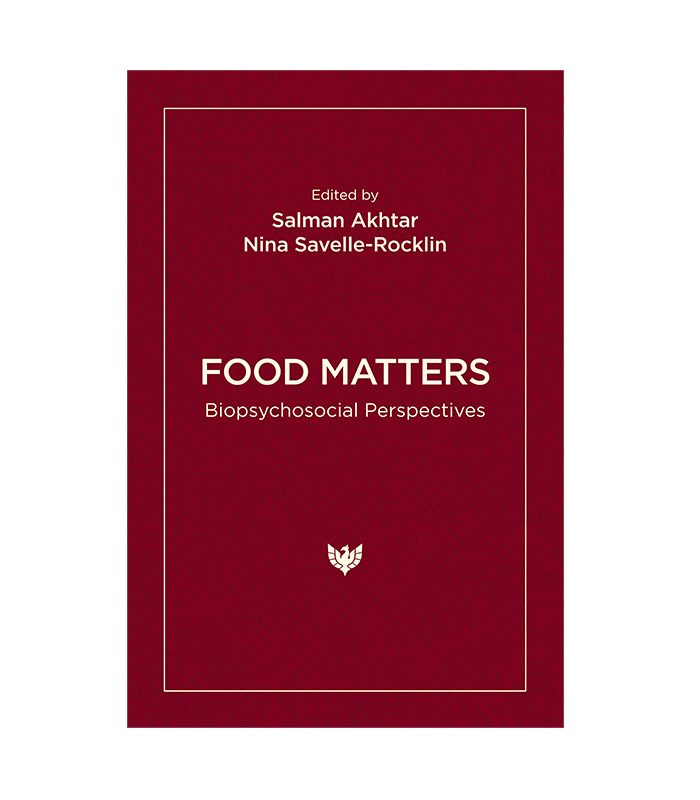Food matters begin even before birth with the absorption of nutrients in the womb and continue through baby feeds, family meals, school dinners, barbecues with friends, and romantic meals to the growing dietary restrictions of old age. The role of food is not limited to its life-giving necessity but plays a huge role in communal bonding, cultural tradition, and self-expression.
Food Matters investigates the significant role that food plays in all of our lives and is divided into three major sections: Mostly biological, Mostly psychological, and Mostly sociological. ‘Mostly’ because biology, psychology, and sociology are not hermetically sealed subject areas and overlaps into other fields are to be expected. Part I : Mostly biological consists of two chapters. The first pertains to food and health, the second to food and illness. At its core, Chapter One aims to undermine the notion of ‘healthy choices’ and demonstrate a more nuanced vision of what actually builds healthy communities. The varied case material of Chapter Two shows the myriad roles food can play in relation to illness. Part II: Mostly psychological has four chapters, which respectively address the relationship between food and sexuality, aggression, narcissism, and morality using wide-ranging theory and practical case examples. Part III : Mostly sociological has three chapters. The first pertains to money, the second to immigration, and the third to movies, again packed with relevant theory and clinical vignettes, and, in the case of the final chapter, using the movies Waitress and Babette’s Feast to show the central role food plays, even in our fictional lives.
This welcome smorgasbord of ideas from an international array of contributors representing the disciplines of psychiatry, psychology, psychoanalysis, anthropology, and gastroenterology will be essential reading for professionals and academics in those fields and will shed fresh light on the subject for anyone with an interest in the multifaceted meanings of food matters.






Kathryn Zerbe, MD, Training and Supervising Analyst, Oregon Psychoanalytic Center and author of ‘The Body Betrayed’ and ‘Beyond the Body Betrayed’ –
‘This collection of highly original and illuminating papers on the pivotal, though neglected, role of food and eating in our emotional and cultural lives fills a void in our field. Its clinical insights and rich storytelling will enlarge the scope of therapists’ attunement to patients, with great benefit to each member of the dyad. I enthusiastically recommend Food Matters to the practitioners of psychotherapy and psychoanalysis at all levels of experience. It is a sumptuous feast indeed.’
Aleksandar Dimitrijević, PhD Lecturer, International Psychoanalytic University, Berlin and co-editor of ‘From the Abyss of Loneliness to the Bliss of Solitude’ –
‘Like music, food is with us always and everywhere. We enjoy it, prepare it, crave it, devour it, avoid it, clean it, love it, despise it, and above all, need it for our survival. Food can make us happy and desperate, proud and ashamed, hopeful and nostalgic. Despite such profound reverberations, the topic of food has somehow remained marginal in psychoanalysis. Now, this thoughtfully edited volume by Salman Akhtar and Nina Savelle-Rocklin brings to us a nuanced biopsychosocial understanding of our relationship with food. The book’s message is loud and clear: food matters.’
Jaswant Guzder, MD, Psychoanalyst and Artist, Former Director of Child Psychiatry at Jewish General Hospital, Montreal –
‘From our earliest attachment phase, sights, smells, and tastes of food get intertwined with psychophysical development, mirroring, sustenance, and growth. This edited volume offers a remarkable exploration of such “food matters” across weaning, bulimia, self-starvation, cultural patterns of cooking and eating, medical illness, and other essential and imaginary territories linking food and mind. It is an exceptional contribution!’